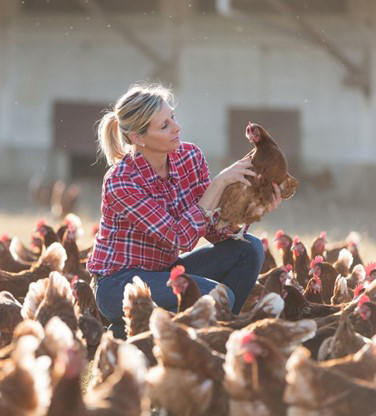“Are you talkin’ to me, Buk, Buk”
“It’s a cluckin’ great leap for science!” Scientists from Japan say they can understand what different chicken sounds mean, thanks to AI. Researchers claim by using technology to analyze chicken’s vocalizations, they can decipher six distinct emotional states including hunger, fear, anger, contentment excitement and distress with 80% accuracy. The study was spearheaded by University of Tokyo professor Adrian David Cheok, “And this is just the beginning. We hope to be able to adapt these AI and ML techniques to other animals and lay the groundwork for incredible intelligence in the various animal-related industries. If we know what animals are feeling we can design a much better world for them. Cheok collaborated with a team of eight animal psychologists and veterinary surgeons who offered their insights about the emotional states of chickens. Together they analyzed a sample size of 80 birds and about 200 hours of sounds. Scientists fed AI with 100 hours of chicken recordings and labeled each sound with an emotional state. Chickens have a variety of complex emotions, say researchers.
They then uploaded 100 hours of new chicken sounds to AI and the technology was able to correctly pinpoint the chickens’ emotional states 80% of the time. “This research not only opens up new avenues for understanding and improving animal welfare, but also sets a precedent for further studies in AI-driven interspecies communication,” said the team. Previous studies on chickens have found that they are highly intelligent and exhibit signs of self-awareness and even some numerical abilities. The AI has been evaluated by at least one working chicken operation, Wilcox Farms, an organic egg supplier in the Pacific Northwest.
Technology is ever-evolving and another startup claims their smart collar can help owners understand their dog’s barks. An app that aims to translate your cat’s meow has been developed by a former Amazon Alexa engineer. MeowTalk records the sound and then attempts to identify the meaning. The cat’s owner also helps to label the translation, creating a database for the AI software to learn from. Research suggests that, unlike their human servants, cats do not share a language. Each cat’s meow is unique and tailored to its owner, with some more vocal than others.
Talk to the animals
A first-grade teacher was reading the story of “Chicken Little” to her class. She came to the part where Chicken Little warns the farmer. She read, “and Chicken Little went up to the farmer and said, “the sky is falling, the sky is falling.” She then asked the class, “and what do you think that the farmer said?” One little girl raised her hand and said, “I think he said, holy shit, a talking chicken.”
A guy sees an ad in a pet-shop window: “Talking Centipede $100.”
The guy goes in and buys it. He gets home, opens the box and asks the centipede if he wants to go for a beer. The centipede doesn’t answer, so the guy closes the lid, convinced he’s been swindled. Thirty minutes later he decides to try again. He raises his voice and shouts, “Do you want to go for a beer?” The centipede pokes his head out of the box and says, “Pipe down! I heard you the first time. I’m putting on my shoes!”
If dogs could talk, it would take a lot out of the fun of having one.
Q: How are a cat and a sentence different?
A: A cat has claws at the end of its paws; a sentence has a pause at the end of its clause!
September 21st Birthdays
1967 – Faith Hill, 1991 – Christian Serratos, 1981 – Karina Kapoor, 1981- Nicole Richie
1963 – Nick Knowles, 1950- Bill Murray, 1957 – Mark Levin, 1972 – Alfonso Riberio



